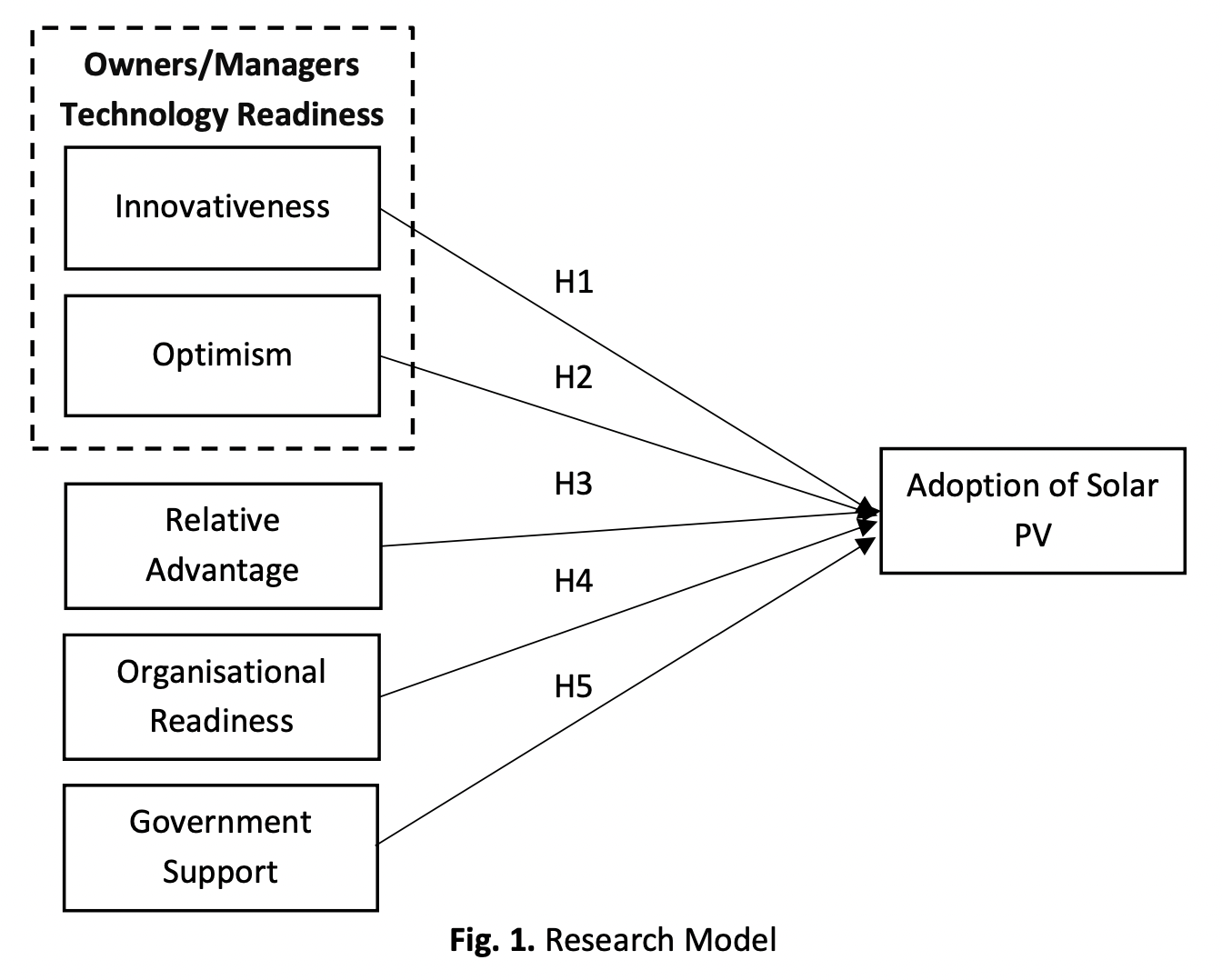Investigating Factors Affecting Solar Photovoltaic (PV) Adoption among Malaysian SMEs
DOI:
https://doi.org/10.37934/araset.32.2.289313Keywords:
Solar PV, adoption, technology readiness, technology-organisational-environmental (TOE) framework, SMEsAbstract
This study investigates the factors affecting solar PV adoption among Malaysian small and medium-sized enterprises (SMEs), focusing specifically on manufacturing. The study employed Technology-Organisational-Environmental (TOE) model as a research framework. The study hypothesised that owners’/managers’ technology readiness (innovativeness and optimism), relative advantage, organisational readiness, and government support play a significant role in the adoption of solar PV. Data were gathered from 69 manufacturing SMEs and analysed using Partial Least Squares (PLS) Structural Equation Modelling (SEM). The findings demonstrate a significant influence of owner’s/managers’ technology readiness (innovativeness and optimism) and relative advantage on a firm’s adoption of solar PV. Meanwhile, organisational readiness and government support were not significant predictors of the adoption. The study’s findings can be helpful to policymakers (e.g., the government) and solar authority bodies [e.g., Sustainable Energy Development Authority (SEDA)] in Malaysia to design effective strategies, programs, and incentives to promote solar PV adoption in the manufacturing sector. The study further suggests that the efforts to promote greater adoption of solar PV among firms should be capitalised on its perceived benefits. In short, consistent with the government initiative to promote a more sustainable environment using renewable energy sources such as solar PV, this study offers an insightful perspective to understand the acceptance of this renewable energy solution among the industry players, specifically the SME sector.
Downloads





























